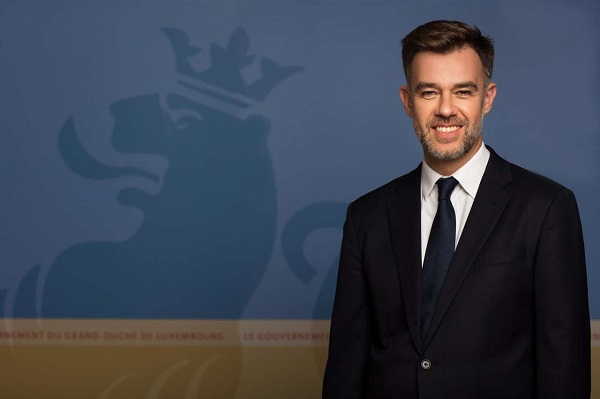 Franz Fayot, Luxembourg's Minister for Development Cooperation and Humanitarian Affairs;
Credit: © SIP / Yves Kortum
Franz Fayot, Luxembourg's Minister for Development Cooperation and Humanitarian Affairs;
Credit: © SIP / Yves Kortum
In his first statement to Luxembourg's Chamber of Deputies (parliament) on Development Cooperation and Humanitarian Action policy, Franz Fayot presented his first overview of the situation since taking office as Minister in February 2020.
He found that 2020 was an eventful year, with the pandemic having a considerable impact not only on Luxembourg's lifestyle and economy, but also on countries with less resilient health systems. According to World Bank projections, 150 million people could slide into extreme poverty as a result of the virus. In this context, Minister Fayot resolutely reaffirmed Luxembourg's commitment to maintaining official development assistance (ODA) at the level of 1% of gross national income. He thus indicated that, in 2020, the global amount dedicated to ODA will have been €392 million, and he stressed that this amount will increase to €403 million for the year 2021.
The Minister recalled that, in the context of the fight against COVID-19, Luxembourg has to date already invested €65.8 million in health and socio-economic projects, especially in Africa, as well as in Latin America, Asia and the rest of the world. The efforts of Luxembourg Cooperation are part of the European "Team Europe" approach, an initiative aimed at coordinating the EU's efforts in partner countries.
The Minister noted that Luxembourg was able to react quickly through its humanitarian aid, in particular by granting €5 million to the UN Central Emergency Response Fund (CERF), €3.5 million to “Covid-19 Global Humanitarian Response Plan” (GHRP) from the United Nations Office for the Coordination of Humanitarian Affairs (OCHA) and €2 million from the International Committee of the Red Cross (ICRC).
In terms of multilateral cooperation, Luxembourg has increased its contribution to Gavi, the Vaccine Alliance, to €5 million for the next five years. The WHO, for its part, was awarded €7.15 million.
In general, 30% of the Luxembourg Cooperation budget is dedicated in the form of multi-annual and flexible commitments to multilateral channels; this is essential in times of acute crisis.
Minister Fayot also underlined the importance of NGOs, another pillar of Luxembourg cooperation. These have been granted increased flexibility in the management of their projects in order to be able to restructure them and better fight against the consequences of the pandemic. Additional budgets were also made available to them in cases where restructuring was not possible.
In addition to the efforts made in the context of the pandemic, the Minister indicated that Luxembourg is continuing its commitment to its partner countries, in particular in the Sahel, a region shaken by multidimensional crises of an economic, social, health and security nature, and also linked to climate change. The majority of Luxembourg Cooperation partner countries are in this region, in particular Niger, with which the Indicative Cooperation Programme (ICP) has been extended for one year, with an increase of €16.8 million, and Mali, upset by a coup, with whom the continuation of relations will be specified before the end of the year. The Minister stressed that the protection of human rights, security, vocational education, health, socio-economic integration of women and young people as well as investment in the private sector for the creation jobs, are key elements of Luxembourg cooperation in this region. In addition, a new generation CIP, known as a “country approach”, taking into account, in the interests of both policy coherence, aspects of development, climate and energy, was signed with Cabo Verde in July 2020, to the tune of €78 million for the period from 2021 to 2025.
Finally, the Minister recalled that Luxembourg Cooperation is also continuing to develop its expertise in several key thematic areas, such as the dimension of gender, financial inclusion and digitisation.








